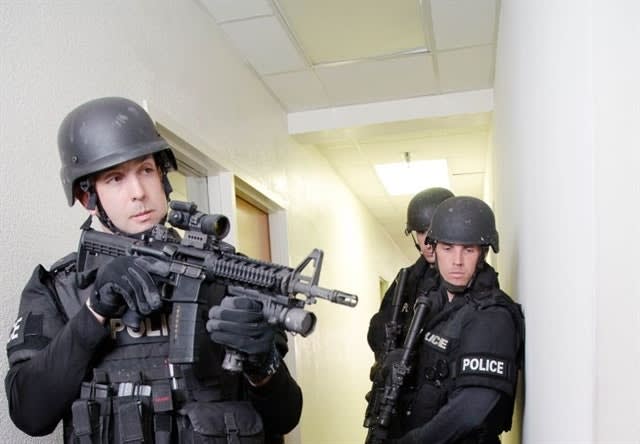Editor's note: This is the latest in a series of articles about how to start a tactical team. Read the most recent entry here.
In the first article on starting a tactical team, we covered the first steps you'll take after being taasked to start the team. You must set achievable goals about the kind of team you're planning to establish. You must also address training needs early in the process.
A failure in the field can mean liability, so you'll want to do something effective rather than just doing something. Long-term strategic planning is paramount to your success.
There have been epic failures from the past. Everybody knows of one. A department got a grant for a team. They purchased weapons; bought everything tacticool in basic black; and went off without a plan. No training, except the rock 'em, sock 'em, shoot 'em up training from their local "swatologist."
They didn't have secondary planning or, as I call it, "but what if then" planning. No medics, no negotiators, no legal support, no sustainability planning, and no support for escalating events. Once they fail, they become a laughing stock. You don't want to become "that team." The agency will stop utilizing that team, and it will die on the budgetary vine. Several years later, if you plan to resurrect a buried failure, the task will be far more difficult. Know your history and find all the skeletons so you can learn from past failures.
We tend to overly stress the tools, equipment, and necessary resources for this specialized assignment. These are important, but you also need to invest in your customer base. Your team will have several customers. First and foremost will be your team members. Tactical operators are the most valuable resource. End of story. You can forget all of nicky-neat black tactical gizmos and widgets. Without trained and mission-centered members, you've wasted your time and money.
Team members want a selection process to ensure they're training and trusting their lives with the best members. The families of the team members want the best surroundings for their loved ones. We owe this to their kids. The other officers who call you who are internal customers also want the best response. We also need to provide quality service to the citizens and businesses of our cities or counties. You are responsible to more folks than you think. We owe it to these groups to do it correctly.
Training prior to first activation is crucial. Here's a baseball analogy. A pro baseball team goes to spring training, which would be like basic tactical training. This also serves as their selection process for the starting lineup and who goes home. Not all the players were on last year's team, so they are also team-building. Next, the ball team will have pre-season games or actually training exercises cleverly disguised as a game. All of this is before the first game. If they are practicing before the season, you should practice for your first call-out.
Compensation for team training and call-outs is something that must be addressed early on. Overtime and backfill can be budget busters and deal breakers. During this preparatory training, if you add in monthly training and call-outs, you may have a larger financial commitment than most administrators counted on.
Also prepare yourself for the jealousy that will divide a precinct. You may hear, "Tommy Tactical gets to go to training all of the time, and all I do is cover his beat." Some commanders and supervisors will also question why they're working short so the team can train. Team members who work for them will receive some backlash. This is another reason why you need department-wide backing and support for the onset.
Related:
How To Start a Tactical Team












